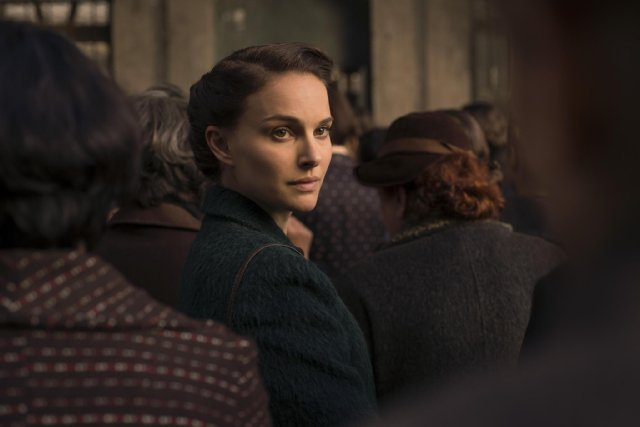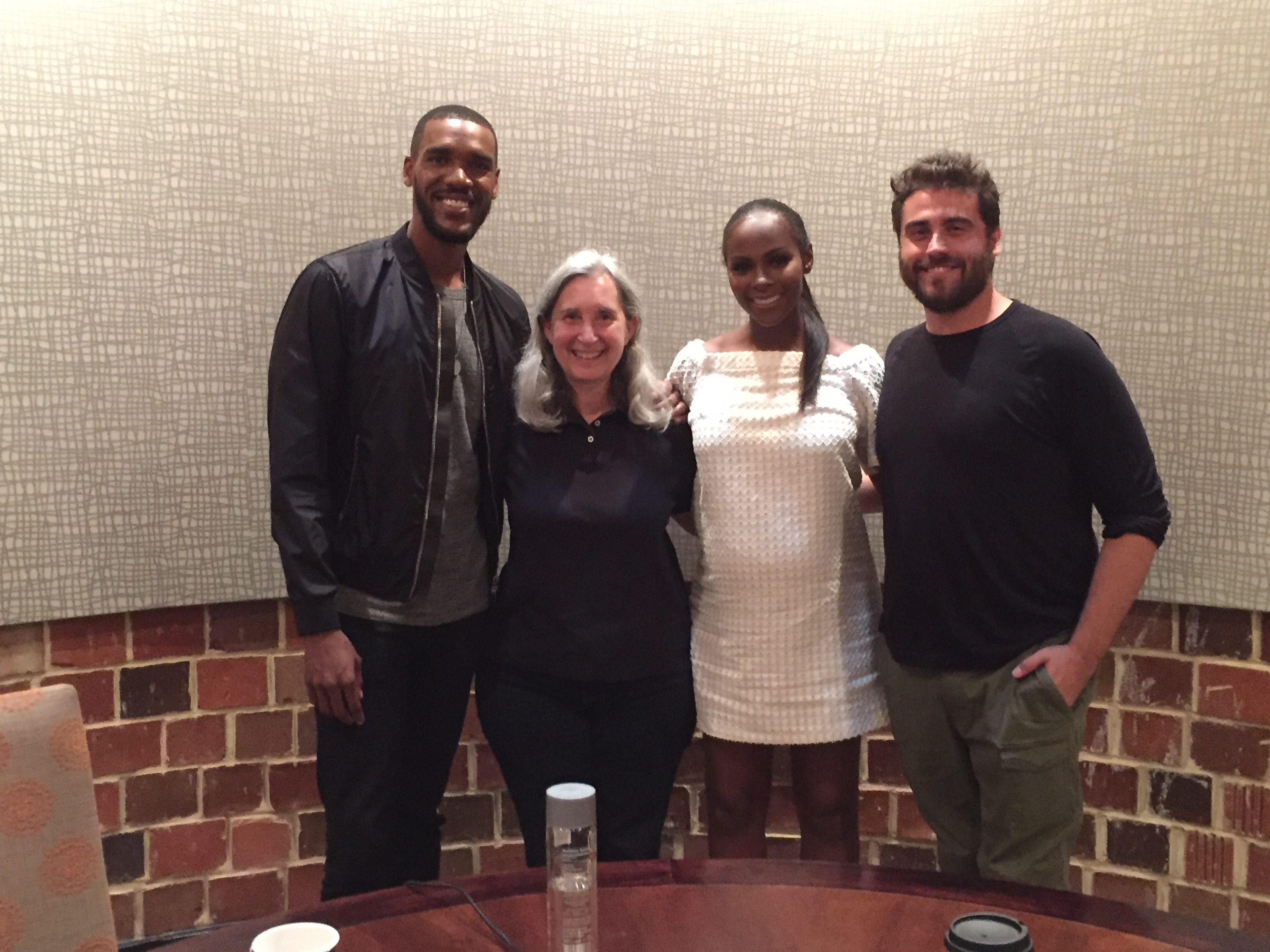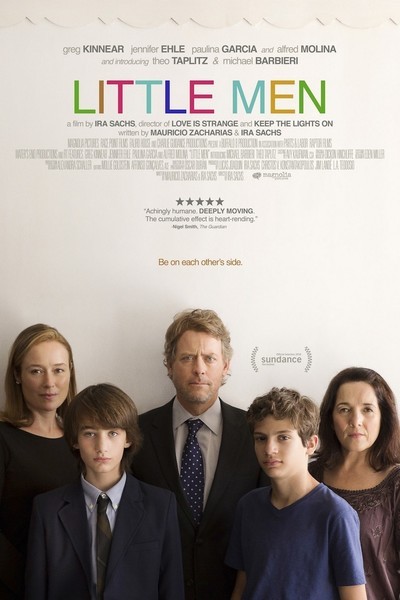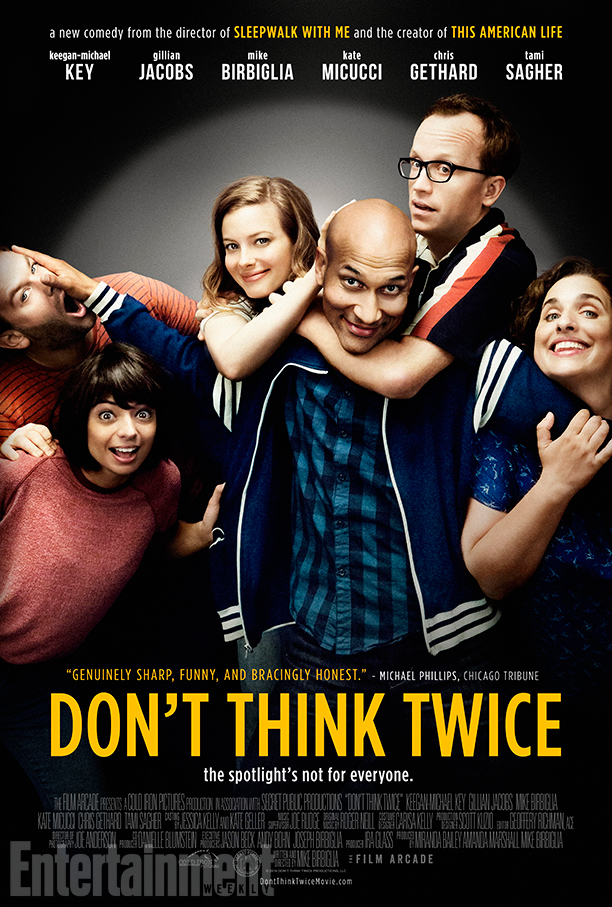Interview: Natalie Portman on “A Tale of Love and Darkness”
Posted on August 31, 2016 at 3:44 pm
Oscar-winning actress Natalie Portman wrote, directed, and stars in “A Tale of Love and Darkness,” based on the international best-selling memoir by Amos Oz. It was a pleasure to speak to her about the challenges of adapting the book and directing a child actor.
What do we learn from the troubled but tender relationship between Amos and his mother?
The film and the book are very much about what happens when expectations don’t line up with reality. And I think that a lot of the things that they might tell young people about what happens once you have a job or once you go to college or once you get married, these things are like the way to happiness or something, once you’ve got to those realities and you achieved those whether you call them goals or expectations and then they are different than you expected them to be, and then dealing with those differences can be one of the most challenging things in life.
In the film, the child’s father is fascinated at the derivation of and connection between words, possibly because it takes place at a time when modern conversational Hebrew was being invented.
It’s a really fascinating time in history because not only was this country of Israel being created by a group of refugees, which I’m not sure has happened before, but also they were revising the language as you said, a language that has been spoken purely in a religious context, in a Biblical or liturgical context for hundreds of years and then all of a sudden it needed to be used for everyday usage and needed to be updated rapidly. And so it’s really fascinating seeing how they came up with new words, what they drew from. Ohad talked about his uncle in the book who was one of the architects of modern Hebrew, creating new words, from biblical words and he created the word for “shirt” and he says in the book, “If my uncle hadn’t invented the word for shirt we would still be saying, ‘I put on my coat of many colors this morning.'” And it’s really amazing how they introduced these new words and got them really accepted into everyday usage. And what an exciting time to be a writer, too, because you could literally invent your language as you were inventing your story.

I think the most important thing was that when I was a kid I felt that everyone on set made sure that the environment felt like playing more than working and I wanted to repeat that for Amir because the film is quite serious in tone. The atmosphere should always be positive for him so I really tried to make sure that everyone was very calm on set and between takes we would goof around and make jokes and not have it be a stressful environment for him.
You have worked with so many outstanding directors, very different directors in terms of their approach and their style. What were some of the things that you tried to take from your experiences and use as a director?
I have been lucky to work with so many people who I admire so much and I took a lot from many different directors I worked with. From Darren Aronofsky, I saw how he worked with each actor really individually. He would do different things with different actors to elicit their performances from them which I thought was really smart because everyone needs something different. And from Terrence Malick, I saw that you don’t have to play by the rules at all. You just need to make movies the way that you make them and the way you want to tell them. And then Mike Nichols just always always says, “Keep reminding yourself what story you are telling, where you are in the story and claim the big moment.”
What do we learn from the scene at the end that gives us a glimpse of the main character as an adult?
The book actually deals with many different time periods including the present. I felt that it was important for me to show where he ends up because he did and end up fulfilling his mother’s dreams in a way by becoming this pioneer by becoming a writer. After all of her storytelling, somehow his mother’s absence turned him into the man he became. He was so influenced by her but also he gave himself his own name. Ohad means strong in Hebrew and it.s part of remaking himself.
How did you use your character’s clothing to tell her story?
I actually was lucky enough to have the great designer Alber Elbaz who formerly designed at Lanvin for the past ten years and is originally Israeli also. He did all of my costumes for the film. We really wanted to tell a story through the wardrobe. I like this European elegance that they had but also poverty. They don’t have a lot and she’s wearing the same clothes over and over again. But they’re beautiful clothes that she had from Europe. She had three outfits. Also the clothes helped tell the passage of time. We go from a more 40’s silhouette to a more 50’s silhouette which helps us understand the time that has gone by.
What were you looking for in the movie’s score?
The music was an amazing part of the film to do and to learn. It’s actually really surprising to me how hard it was because I really love music and I’ve always known very specifically the kind of music that I want. But the problem with this film, the music that I felt fit emotionally, when you put it next to the actual emotion on the film, it kind of doubled the emotion and was too much. And so I realized that you have to actually had to go against, and again, it can’t be the exact same emotion you’re going for. I worked with a really close friend, the composer Nick Britell who was amazing. He would just sit with me and try hundred different things because I really needed to hear it to make sure it was right. He wrote so many beautiful pieces for the film. I’m so proud of the work that he did and he added immeasurably to the film.
What do you want this film to tell people about Israel?
I don’t intend to be educational on this film. It’s really very much about a family. But I think if there’s anything that movies can do it is that they can remind us that people and places that we might not know about or that we might have preconceived notions about or even prejudices against, they can make us relate to someone as a human and hopefully you just see them in a different way. A movie can help you relate to the emotion and it might of someone that you might never meet your whole life.








